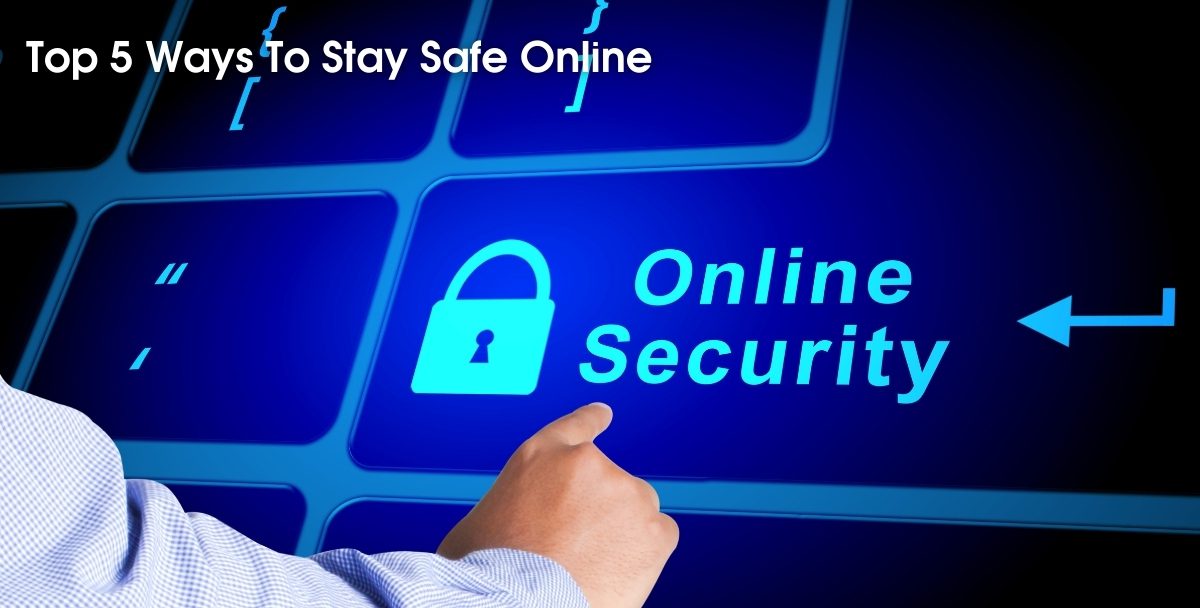Top 5 Ways To Stay Safe Online

Millions of Americans across the country fall victim to cybercrime every year, but don’t let your family be the next! There are easy steps you can take to safeguard yourselves by just practicing basic internet safety. You’ve probably heard of some of these before, but there’s a good reason for that; they’re important to follow. Whether you have HughesNet, Verizon, MetroNet, GotW3, or any other internet provider, rest assured these five tips will set you well on your way to ensuring your entire household stays safe online.
Thank you for reading this post, don't forget to subscribe!Password Protect Your Wi-Fi Network
The easiest way you can stay safe online is locking down your Wi-Fi network. When you leave your Wi-Fi network open and available to everyone in your neighborhood, anyone within range get on. Even if you trust your neighbors, leaving it not password protected puts all of your devices and everything connected to your network at risk including allowing anyone to see what is shared on your network. If that isn’t frightening enough, when an infected device connects to your network, it will spread it around like wildfire and infect every device you have.
Beef Up Your Passwords
Make your passwords stronger by making them at least 8 characters long with an even mix of upper and lowercase letters, numbers and special characters. Try not to use easy things to guess like your name or street you live on. Experts now say it’s best to come up with an entire phrase that includes spaces. Whatever you decide, beef up your passwords, change them often and don’t share them with anyone. When available, turn on the two factor authentication. It’ll take you more time to login on new devices, but allowing that extra step to text or call your phone with a code will keep hackers out of your online accounts.
Delete Suspicious Emails
Be wary of what emails you receive, what links you click on and what attachments you download within them. It’s best to just delete all suspicious emails and those that come from a sender you don’t know. Clicking on links and downloading attachments from unknown senders can open up your devices to becoming infected with a virus.
Get Internet Security Software & Keep It Up To Date
Internet security software is one of the best steps you can take to proactively stay safe online. It’ll protect your devices from malware, viruses, worms and spyware by actively monitoring for it while you’re online.
Once you have internet security software, keep it up to date! Keeping your software up to date ensures that you’re protected against the latest malware and schemes out there. Updates happen often so if automatic updates are an option, turn them on so it’ll do it in the background and you won’t have to worry about it in the future.
Keep Your Personal Information Personal
Be mindful of what you publish on your social media profiles. Sharing things like your birthday, address and answering and reposting viral quizzes can give vital information that can be used by hackers to crack your passwords and answer your security questions. Even if you make your profile and posts private, do not accept friend requests from people you know or second profiles from people you do know. Friend requests from friends that already have a profile are likely someone who is impersonating your friend trying to gain personal information.
